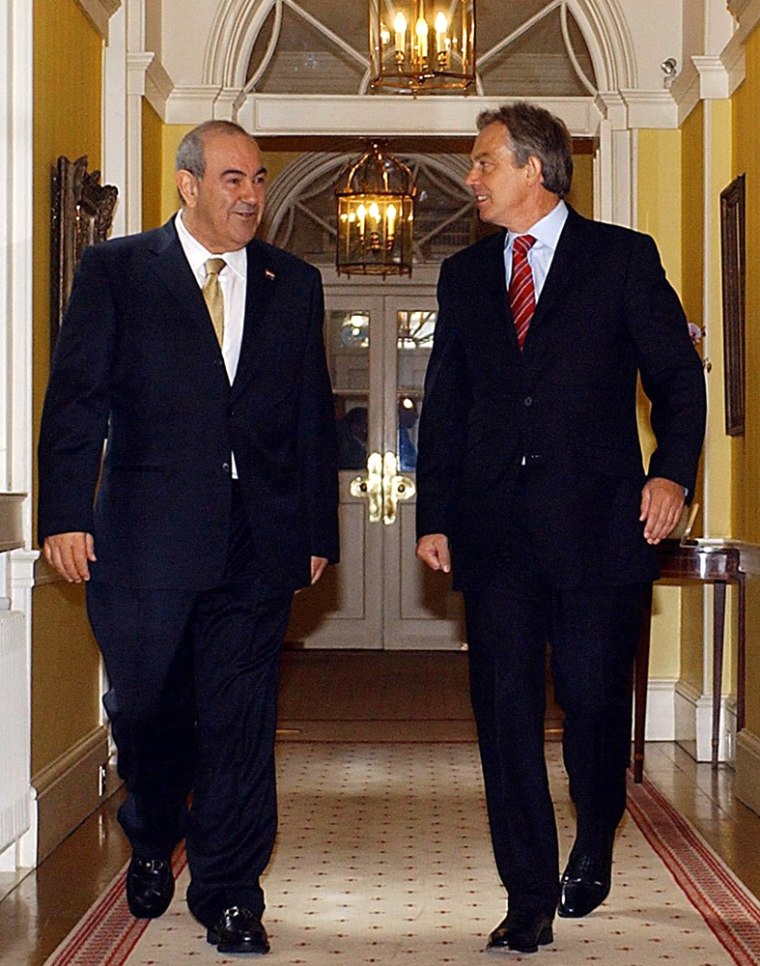Interim Prime Minister Ayad Allawi said Sunday that elections will go ahead as scheduled in January despite a surge in violence, and U.S. warplanes and artillery pounded the insurgent-held city of Fallujah.
A wave of bombings, kidnappings and street fighting has claimed some 300 lives in the past week, part of a 17-month anti-U.S. insurgency that has persisted since Allawi's interim government took power in June.
Last week, U.N. Secretary-General Kofi Annan warned there could not be "credible elections if the security conditions continue as they are now."
But Allawi, who spoke with reporters after a meeting with British Prime Minister Tony Blair in London, said his government was determined that elections take place on Jan. 31.
"We are adamant that democracy is going to prevail, is going to win in Iraq," said Allawi, who is heading to the United Nations for this week's General Assembly session.
Saddam on trial soon?
In an interview with ABC’s “This Week,” Allawi also said that Saddam would go on trial in the coming months.
“Roughly speaking, I think October,” Allawi said when asked when trials will begin. “Some of his supporters who are detained will be in court and maybe he will appear in November or December, but definitely in October the whole issue will start of the trial.”
“It’s going to be a very transparent and very just trial. We are going to ensure that. But I don’t think it’s going to take a long time because the evidence against him is so much. Really, it’s overwhelming. So we hope justice will be served,” he said in the interview, airing Sunday.
He noted that the death penalty — which was suspended during the U.S. administration of Iraq — has been restored, but did not say whether he expected the ousted dictator to be executed if convicted.
Since his capture last December, Saddam has been held in U.S. detention at an undisclosed location awaiting trial on broad charges of killing rivals, gassing Kurds, invading Kuwait and suppressing uprisings.
Eleven of Saddam’s top lieutenants also face trial, including Ali Hasan al-Majid, known as Chemical Ali for his role in chemical weapons attacks against the Kurds; Sultan Hashim Ahmad, Saddam’s defense minister; Taha Yassin Ramadan, a former vice president; and Tariq Aziz, former deputy prime minister and foreign minister and the international face of Saddam’s regime.
Allawi said Saddam has “not yet” provided interrogators with useful information but that some of his “fellow detainees” have.
Blair: 'This new Iraq conflict'
The violence in Iraq taken some 300 lives in the past week and Baghdad, Allawi’s seat of power since he was appointed in June, suffers almost daily street fighting, kidnappings and car bombings.
Blair, speaking alongside Allawi, described the unrest as “this new Iraqi conflict.”
“Whatever the disagreements about the first conflict in Iraq to remove Saddam (Hussein), in this conflict now taking place in Iraq, this is the crucible in which the future of this global terrorism will be determined,” Blair told a news conference.
